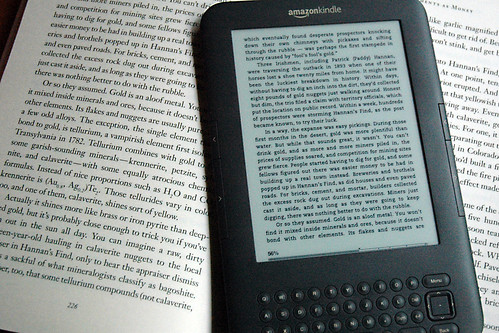Justice (Deck of Lies, #1)
Get it everywhere online books are sold!
The Tower (Deck of Lies, #2)
Visit the Books page for free samples
Death (Deck of Lies, #3)
Get book downloads on the Free Stuff page
Judgment (Deck of Lies, #4)
Get the boxed set edition to get even more secrets!
Hope's Rebellion
Get it now!
Saltwater Secrets, Book 1: Song of the Sea
Take the plunge!
Saltwater Secrets, Book 2: Death and the Deep
NOW AVAILABLE!
Writing 101: You Don't Have to Be Gifted
There are those who say that writing is a talent. I say that it's a job. And to be an author, you don't have to be gifted or talented or even lucky. But you do have to be a hard worker, even if you've got all the other stuff already.
Talent Might Be a Myth
I'm not sure I believe in talent (perhaps because I haven't got any). Some of the most divine natural actors may never step off the community theater stage, and amazing singers are wilting away behind cash registers all over the country. It's fine to have talent, to be gifted, but at the end of the day it's a gift that gives you very little.
The highly gifted fail every single day at all sorts of things. The talented fall down and make missteps and struggle, and some of them flounder and never succeed at their dreams. But those who do achieve success usually have the same thing in common: they work hard.
Indie News: Mac App Aims to Serve Indies
Self-publishing a book? There's an app for that...now. Mac owners can make use of Vellum. If the functionality is as good as the name, writers are sure to be delighted with it. There's just one question: what the heck does a self-publishing app do?
iPublishing
Because if an app can do all that tedious promotion and editing, count me in. But that's not exactly what Vellum does. Two former Pixar designers came together to create the app, which is designed to make it easier for writers to format and distribute their work.
Books on Film: The Polar Express
Electric train are a modern symbol of Christmas, so what could be more seasonal than a story about a train that takes kids to the North Pole on Christmas Eve? I'm talking about The Polar Express, of course, and if you've got a TV in December you've probably seen it. But have you read the book?
The Book
Chris Van Allsberg wrote and illustrated The Polar Express, which was published in 1985. It's won several awards and it's a highly popular holiday book among kids and parents. If you've seen the movie, you already have a idea of what the illustrations look like.
The story in the book introduces us to a young boy who does not believe in Santa Claus. This begins to change when the Polar Express arrives on his front lawn, all set to take him to the North Pole.
The Film
The Polar Express finally became a film in 2004. The project had big names attached to it early (Tom Hanks, Robert Zemeckis), so it was pretty much a guaranteed hit. Live action capture was used to make the animated characters look and move more realistically. The realism of The Polar Express sets it apart from many other animated holiday films.
The film centers on a young boy who is just on the crux of no longer believing in Santa Claus. As he goes to bed on Christmas Eve, he questions whether or not Santa actually exists. Before he drifts off to sleep, the peaceful night is interrupted...by the sound of a train.
It's the Polar Express, a train that takes children to the North Pole. Our hero waffles, but eventually he does jump onto the train. There is a lot of adventure, and he meets several other children, before the journey is complete. And when he does get to the North Pole, does he meet Santa Claus? You'll have to watch the film to find out.
It's the Polar Express, a train that takes children to the North Pole. Our hero waffles, but eventually he does jump onto the train. There is a lot of adventure, and he meets several other children, before the journey is complete. And when he does get to the North Pole, does he meet Santa Claus? You'll have to watch the film to find out.
What Got Adapted?
The Polar Express is a short children's book and frankly there isn't enough material for a feature-length film. So lots of stuff got added to the film that builds upon the original story. The know-it-all kid (voiced by Corey Feldman), the hobo ghost, the little girl and several other characters are added out of whole cloth.
Entire scenes were added to the film to create more story. The roller coaster moment, the rebellious journey through the North Pole, and all the ticket-punching business was fabricated for the sake of the movie.
The original book is beautifully illustrated and the short story will delight kids of all ages. The film has beautiful animation and Tom Hanks voices no less than 6 roles, so you want to see that for sure. Enjoy them both, and happy holidays!
Writing 101: Authors and Substance Abuse
"Write drunk, edit sober."
– Ernest Hemingway
I giggled when I first saw that quote from Hemingway. I stopped smiling when I remembered that alcoholism eventually destroyed him...and lots of other great authors. When it comes to authors and substance abuse, this profession seems to have more than its fair share of drunks. And no matter how amazing these addicted authors are or were, no one should attempt to follow their soggy footsteps.
Losing the Battle
Start looking for authors who spent too much time looking at the bottom of a bottle, and you're going to find them. Hemingway battled alcoholism (and lost) for much of his life. He eventually took his own life despite his success and fame. Edgar Allen Poe, often regarded as the master of modern horror, had a serious alcohol problem. He died mysteriously, and the substance abuse definitely didn't help to prevent his untimely demise.
Hunter S. Thompson was famously an addict. You can see something of what his life was like in Fear and Loathing in Las Vegas. There was probably no drug he did not try, and one day he shot himself in the head with a gun. Is the substance abuse linked to the suicide? Fans can only speculate, but going though the highs and lows of drug use surely did not help him with any emotional problems he may or may not have been experiencing.
Playwright Tennessee Williams, famous for Cat on a Hot Tin Roof and a whole host of other stories, also had issues with alcohol. Even Stephen King indulged, and things got so bad his friends and family staged an intervention to bring him back from the brink of substance abuse.
Authors and substance abuse have been linked a lot throughout history, and it's not a pattern that should be repeated. All due respect to Hemingway, but writing drunk or otherwise compromised is never a good idea. You're likely to spit out a bunch of words and plot that make no sense, and wading through that nonsense later will be a huge headache. Always write clear-headed. It's fine to indulge in a little alcohol with friends during a special event, but if you feel that you need to drink on a daily basis then you have a problem. Please get help for it. There is lots of help available.
Many of the authors who suffered from substance abuse died with very little money or happiness, often all alone, in very undignified ways. You don't want to leave that sort of legacy behind, to be a sad footnote in someone's blog post, to spend your talent swimming around inside of a whiskey bottle. Authors may turn to substances in order to combat the loneliness and the strong emotions that come with the job, but there are better ways to cope. Substance abuse will destroy you in the end, just as it destroyed so many other talented writers.
Justice, by Moonlight
"Varden sure does know how to tell a story and keep you intrigued."
"If you like a book that will surprise you and keep you in suspense, pick up Justice by Jade Varden."
Moonlight Reader has reviewed Justice (Deck of Lies, #1). Read the full review to see the final rating!
Writing 101: Should You Be Using Matchbook?
Amazon has blazed a trail for today's indie authors. Their KDP program made it possible for millions of books to be published and sold. Amazon's newest invention for indies is the Matchbook program, and it could help the mega-site sell even more books. Should you be using it to sell more of yours?
Amazon's Matchbook
If you haven't heard about Amazon's new program, it's no big deal. It's still pretty new. But you'll probably start hearing more about it soon. The Matchbook programs sells itself. Customers who buy a print copy of a book receive a free or highly discounted Kindle copy of the same. It's a great deal for the consumers, who may want their book in both print and electronic form to easily read between locations.
Subscribe to:
Posts (Atom)



























